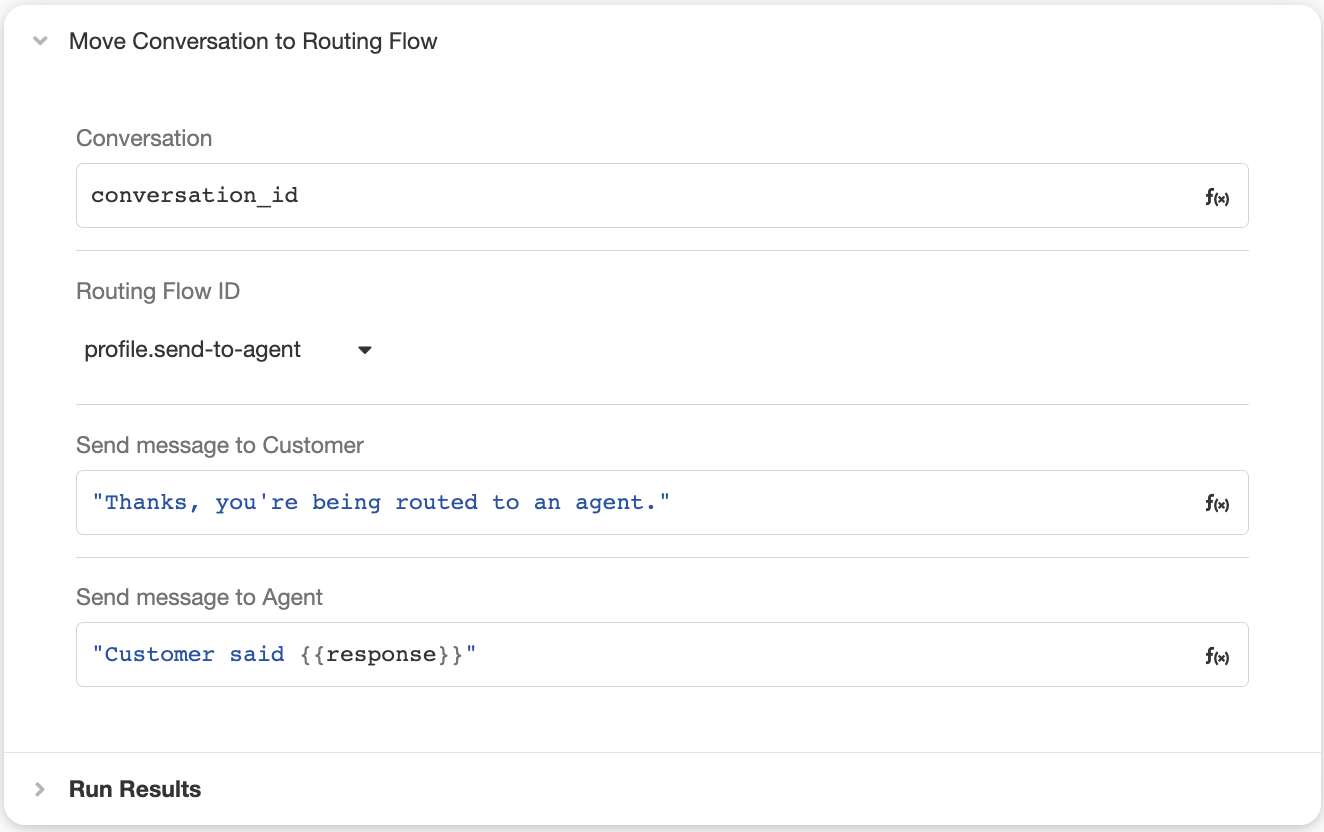The Move Conversation to Routing Flow Data Operation directs users to a Routing Flow as part of a Conversation Chat Bot.
Routing Flows determine where incoming user messages will be sent and how they will be responded to. The three fundamental types of Routing Flows are:
- Bots, which process user messages and send responses based on the automatic chat logic flow defined by Answer Flows
- Agents, which send user messages to human beings who work in a call center and allows them to craft custom responses
- Relays, which send user messages to be proceed by external systems like Salesforce or Kustomer.
For more on how to configure Routing Flows so that Conversations can be moved to them, see Configuring Conversation Chat Bots.

Enterprise FeatureThis Data Operation requires an ENTERPRISE license. If you would like to enable this feature for your Airkit Organization, please contact your Airkit representative or contact [email protected].
Use Cases
- Route conversations to human agents once the end user as made it clear their needs extend beyond the scope of what a Bot is programmed to handle.
- Route conversations to another Bot more suited to helping the user accomplish their goals.
- Route conversations to an externally-managed chat engine, such as the one provided by Salesforce.
Data Operation Properties
Conversation ID
Expects type text. This text should correspond to the identifier that a Conversation got assigned upon being initialized; this identifier will be stored under channels.message.conversationId in the relevant Session.
This property defines the Conversation that the Move Conversation to Routing Flow Data Operation will redirect to the designated Routing Flow.
Routing Flow
Expects type text. This text should correspond to an available Routing Flow, all of which will be available for selection in the dropdown menu. To make a Routing Flow available within an app, it will need to be bound to a Conversation Hub in the Console and then configured in Settings. For more on how to do this, see Configuring Conversation Chat Bots.
This property defines the Routing Flow that the user will be directed to.
Send message to Customer
Expects type text.
This defines a message that will be sent to the user as the conversation is redirected to the new Routing Flow.
Send message to Agent
Expects type text.
If the Routing Flow is not redirecting the user to a Bot, this defines a message that will be sent to the human agent upon directing the conversation to them. This content should make it easier for the agent to quickly familiarize themselves with the context of the conversation thus far.
Run Results
By default, Airkit stores the output of this Data Operation in an auto-created variable called conversation that can then be passed into subsequent operations. The value of conversation indicates whether or not the Conversation was successfully moved to the designated Routing Flow.
Conversations can only be moved to a Routing Flow if the Conversation is occurring in deployment.Unlike most Data Operations, the Move Conversations to Routing Flow Data Operation cannot be run without referring to a deployed application. Before you can test any instance of this Data Operation, it must be able to refer to a published Conversation Chat Bot. For more on how to publish a Conversation Chat Bot, see Configuring Conversation Chat Bots.